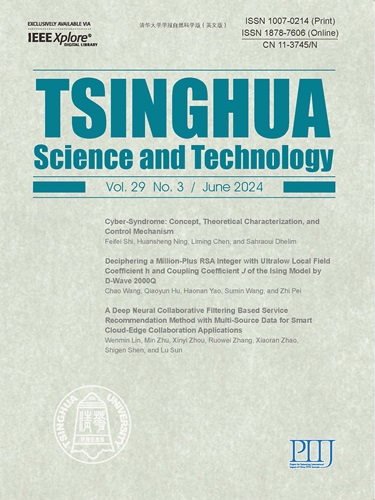HEDMGame: Fragmentation-Aware Mitigation of Heterogeneous Edge DoS Attacks
IF 3.5
1区 计算机科学
Q1 Multidisciplinary
引用次数: 0
Abstract
Mobile Edge Computing (MEC) is a pivotal technology that provides agile-response services by deploying computation and storage resources in proximity to end-users. However, resource-constrained edge servers fall victim to Denial-of-Service (DoS) attacks easily. Failures to mitigate DoS attacks effectively hinder the delivery of reliable and sustainable edge services. Conventional DoS mitigation solutions in cloud computing environments are not directly applicable in MEC environments because their design did not factor in the unique characteristics of MEC environments, e.g., constrained resources on edge servers and requirements for low service latency. Existing solutions mitigate edge DoS attacks by transferring user requests from edge servers under attacks to others for processing. Furthermore, the heterogeneity in end-users' resource demands can cause resource fragmentation on edge servers and undermine the ability of these solutions to mitigate DoS attacks effectively. User requests often have to be transferred far away for processing, which increases the service latency. To tackle this challenge, this paper presents a fragmentation-aware gaming approach called HEDMGame that attempts to minimize service latency by matching user requests to edge servers' remaining resources while making request-transferring decisions. Through theoretical analysis and experimental evaluation, we validate the effectiveness and efficiency of HEDMGame, and demonstrate its superiority over the state-of-the-art solution.异构边缘DoS攻击的碎片感知缓解
移动边缘计算(MEC)是一项关键技术,它通过在最终用户附近部署计算和存储资源来提供敏捷响应服务。然而,资源受限的边缘服务器很容易成为拒绝服务(DoS)攻击的受害者。未能有效减轻DoS攻击会阻碍可靠和可持续的边缘服务的交付。云计算环境中的传统DoS缓解解决方案并不直接适用于MEC环境,因为它们的设计没有考虑到MEC环境的独特特征,例如边缘服务器上的资源受限以及对低服务延迟的要求。现有的解决方案通过将用户请求从遭受攻击的边缘服务器转移到其他服务器进行处理来缓解边缘DoS攻击。此外,终端用户资源需求的异质性可能导致边缘服务器上的资源碎片化,并削弱这些解决方案有效减轻DoS攻击的能力。用户请求通常必须传输到很远的地方进行处理,这增加了服务延迟。为了应对这一挑战,本文提出了一种名为HEDMGame的碎片感知游戏方法,该方法在做出请求传输决策时,试图通过将用户请求与边缘服务器的剩余资源相匹配来最小化服务延迟。通过理论分析和实验评估,我们验证了HEDMGame的有效性和效率,并证明了其优于当前最先进的解决方案。
本文章由计算机程序翻译,如有差异,请以英文原文为准。
求助全文
约1分钟内获得全文
求助全文
来源期刊

Tsinghua Science and Technology
COMPUTER SCIENCE, INFORMATION SYSTEMSCOMPU-COMPUTER SCIENCE, SOFTWARE ENGINEERING
CiteScore
10.20
自引率
10.60%
发文量
2340
期刊介绍:
Tsinghua Science and Technology (Tsinghua Sci Technol) started publication in 1996. It is an international academic journal sponsored by Tsinghua University and is published bimonthly. This journal aims at presenting the up-to-date scientific achievements in computer science, electronic engineering, and other IT fields. Contributions all over the world are welcome.
 求助内容:
求助内容: 应助结果提醒方式:
应助结果提醒方式:


